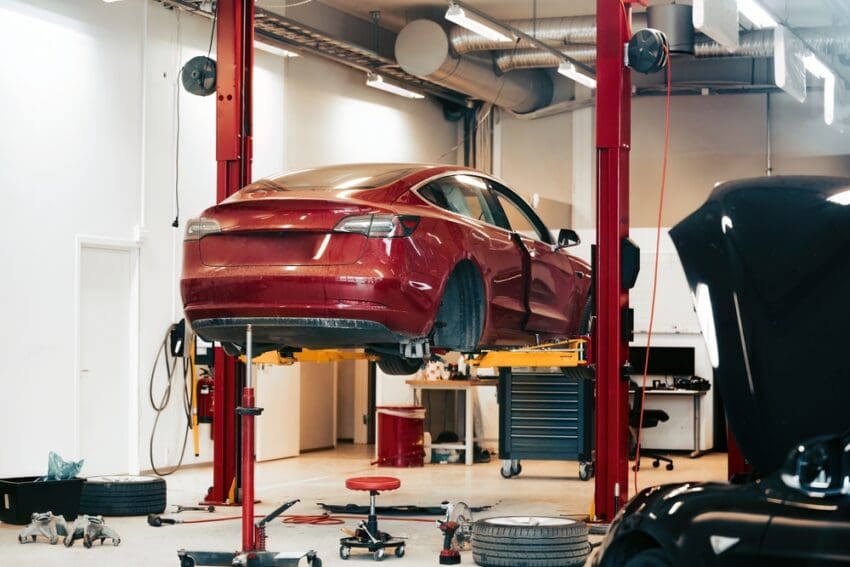Technical skills shortage could put the brakes on EV transition
Marc Russell, CCO at FixMyCar, discusses how the lack of specialist EV technicians could hurt customer opinions of electric cars, and what needs to change to avoid this
Potholes are not the only bumps in the road for drivers. The transition to electric vehicles (EVs) has stopped and started over the past five years. Data from the European Automobile Manufacturers’ Association (ACEA) said EV registrations fell by a third in August and pointed to ongoing challenges for drivers looking to go green.
Despite vehicle choice, range and costs improving, there continues to be a lack of specialist technicians to repair and service EVs. The share of battery-electric and other zero-emission vehicles in Europe is projected to rise to over 60% for cars, over 40% for vans, and close to 40% for heavy-duty vehicles by 2040 according to the IEA. To meet increasing demand, a new standard needs to be set for re-skilling local automotive talent in Europe to work on electric cars safely.
The skills gap in specialist EV technicians presents a dual threat to the automotive industry: mechanics miss a lucrative market, and consumers face longer repair times, higher costs, and safety risks from unqualified work. There is a unique opportunity for the education sector, automotive sector, governments and public to collaborate and power the EV industry to ensure long-term and sustainable growth.
Reaching ambitious climate targets
With the EU’s ambitious target to be climate-neutral by 2050, investment researcher Jeffries predicts the number of EVs on its roads will reach 6.8 million by 2030. This rapid increase in ownership will create a substantial demand for qualified technicians who can safely and efficiently maintain and repair these vehicles.
Unlike traditional cars, EVs come with high-voltage systems. Advanced batteries and software-driven diagnostics require specialist knowledge,skills and tools to maintain and repair them safely. Many garages and mechanics are yet to adapt, held back by limited training options, expensive tools and a lack of capacity to take on EV bookings.
Raising awareness amongst the younger generation about EV-qualified technicians will encourage more individuals to consider careers in this field. Change needs to happen from the jump. When school leavers choose their career paths, EVs should be a part of the engineering syllabus at A-Level or apprenticeship schemes. Manufacturers like Audi and Kia offer education in electrification and some colleges offer specific EV courses, but this needs to be reflected in the core curriculum. Otherwise, unless chosen to specialise in EVs, there is an imbalance in the skills learnt by the mechanics of tomorrow.
Tools for mechanics
The IMI, a leading professional body for the automotive sector, offers accredited EV courses across levels 1 to 4. By providing comprehensive and up-to-date training programs, the IMI helps to maintain high standards of professionalism and expertise within the industry.
Beyond ensuring the workforce has had ample training on how to repair EVs, the pressure for garages to invest in specific EV diagnostic and repair equipment can be a burden. One investment method garages can try is collaborating with EV manufacturers, and equipment suppliers – who may be able to offer discounted pricing, bulk purchase deals, or leasing options.
Another consideration is working with local public transport providers with EV fleets to access specialised equipment on a rental basis. By using the latest technology on an ad-hoc basis, garages can offer hands-on training to their staff and save costs long-term.
It’s time for garages to adapt
The EV skills shortage presents a challenge and an opportunity for garages to position themselves at the forefront of the electric revolution. The future of the automotive industry depends on its ability to adapt and embrace the new technologies shaping the transportation landscape.
Training, acquiring specialised equipment, and collaborating with industry partners will help maintain EVs in Europe as demand grows. The focus of the government to date has largely been on making EVs more accessible to drivers. For Europe to truly complete the transition to EVs, the same attention must be given to repairs and maintenance or risk-stalling progress towards a cleaner and greener transportation sector.
